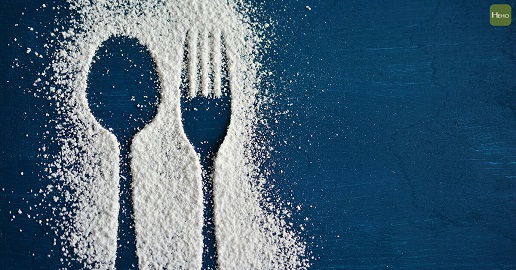Diabetes patients are often aware that they need to control their intake of sugars, starches, and fats, but many overlook that daily intake of salt also affects blood sugar stability. Excessive salt intake not only leads to high blood pressure but also inhibits insulin secretion, indirectly causing blood sugar levels to rise. It also stimulates the secretion of ghrelin, making diabetic patients feel hungrier, eat more, and increasing the risk of obesity and diabetes. Excessive salt intake may indirectly lead to the worsening of diabetes. (Image / Provided by Heho Health)
Excessive salt intake may indirectly lead to the worsening of diabetes. (Image / Provided by Heho Health)
Studies show that sodium ions in salt enhance the activity of amylase, accelerating starch digestion and glucose absorption in the small intestine, further raising blood sugar levels and negatively impacting the condition of diabetes patients. According to international studies, consuming 2.5 grams more than the recommended daily salt intake increases the risk of type 2 diabetes by 43% and has adverse effects on kidney function and blood pressure. Diabetes patients should limit daily salt intake to no more than 5 grams and also control the intake of sodium-containing seasonings, such as soy sauce, to no more than 20cc per day. Excessive salt intake not only leads to high blood pressure but also inhibits insulin secretion. (Image / Provided by Heho Health)
Excessive salt intake not only leads to high blood pressure but also inhibits insulin secretion. (Image / Provided by Heho Health)
Diabetes patients should adopt a low-salt, low-sodium diet, focusing on three key strategies. First, when cooking at home, avoid using excessive seasonings such as salt or MSG, and refrain from consuming high-salt processed foods. Second, do not add salt or soy sauce during the cooking process; instead, place a measured amount of salt or soy sauce in a bottle and sprinkle it on the finished dish to precisely control the intake. Lastly, when eating out, separate the food and wash salty dishes in clear soup before consuming to reduce salt intake. By following these measures, diabetic patients can better control their blood sugar levels and maintain good health.







